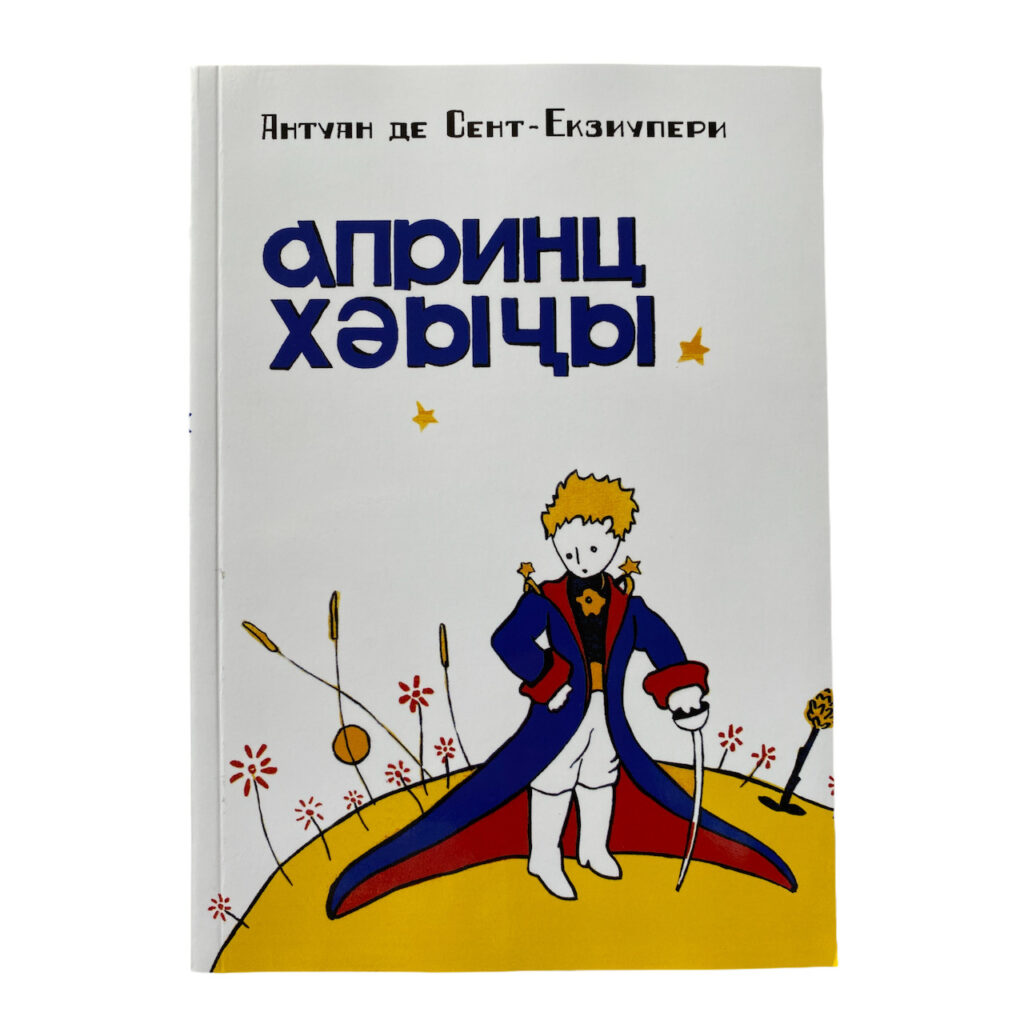
Апринц Хәыҷы / Aprints Keycy — in Abkhaz.
Abkhaz, Abkhazian, or Abxaz (Аԥсуа бызшәа / apʰswa bɨzʃʷa) is a Northwest Caucasian language spoken primarily in the Republic of Abkhazia, which is a region internationally recognised as part of Georgia but with de facto independence. Abkhaz is also spoken by communities in Turkey, Russia’s Republic of Adygea, and other countries where Abkhaz diaspora reside. The language is known for its distinctive phonological features, including a rich array of consonants and relatively few vowels, as well as its complex grammatical structures.
Abkhaz is notable for its extensive consonant inventory, with more than 50 consonant sounds, including labialised, ejective, and uvular stops and fricatives, which are rare or absent in most other languages. It has only two native vowel sounds, though the number of vowels can increase to seven or more due to the influence of Russian and other languages. Abkhaz phonology is also characterised by its use of phonemic vowel length and a distinction between palatalised and non-palatalised consonants.
Abkhaz grammar is agglutinative, meaning that it uses a series of prefixes and suffixes attached to root words to indicate grammatical relationships. The language has a complex system of verbal inflection, with verbs marked for tense, mood, person, and number. Abkhaz does not use prepositions; instead, it employs postpositions and relational nouns to express spatial and temporal relationships. The language also features ergative-absolutive case alignment, which affects the way subjects and objects are marked in different types of sentences.
The Abkhaz alphabet has undergone several changes over the past century. Originally written in the Cyrillic script, it was briefly replaced by a Latin-based script in the 1920s and early 1930s before reverting to Cyrillic, with modifications to accommodate Abkhaz phonology. The current Abkhaz alphabet uses a modified version of the Cyrillic script, consisting of 62 characters, including letters unique to Abkhaz.
The Abkhaz language is an integral part of the Abkhaz people’s cultural identity, with a rich oral tradition that includes folklore, myths, and epic poetry. The language and its literature play a crucial role in expressing and preserving the historical memory and cultural values of the Abkhaz people. Despite of these, the number of Abkhaz speakers—estimated to be between 100,000 and 200,000—is relatively small, and the language is considered endangered.


